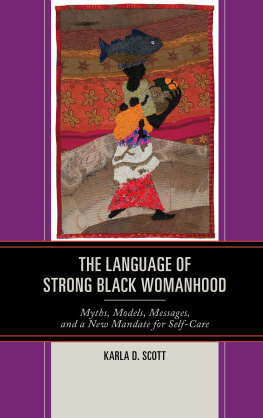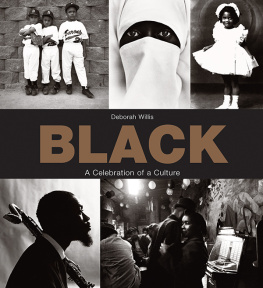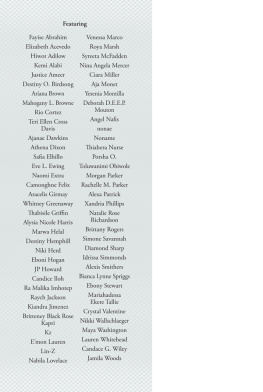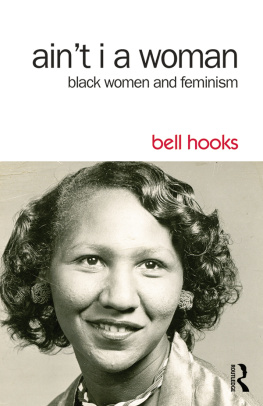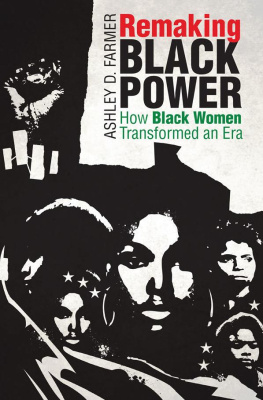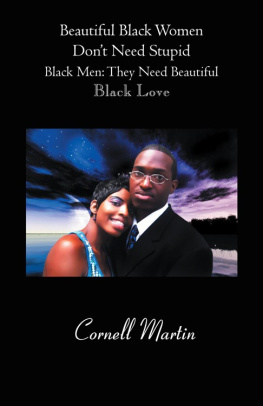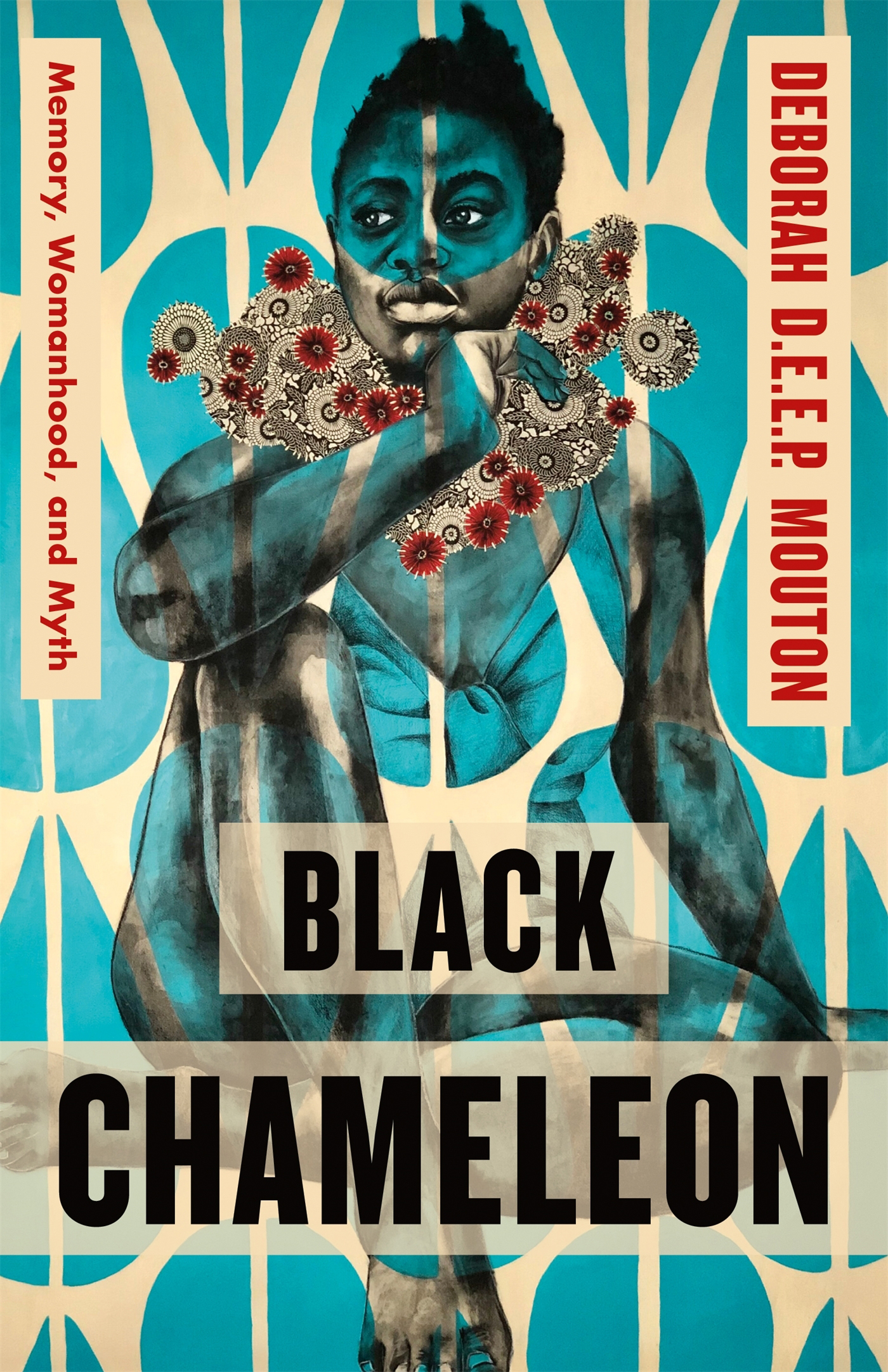Contents
Guide
Pagebreaks of the print version
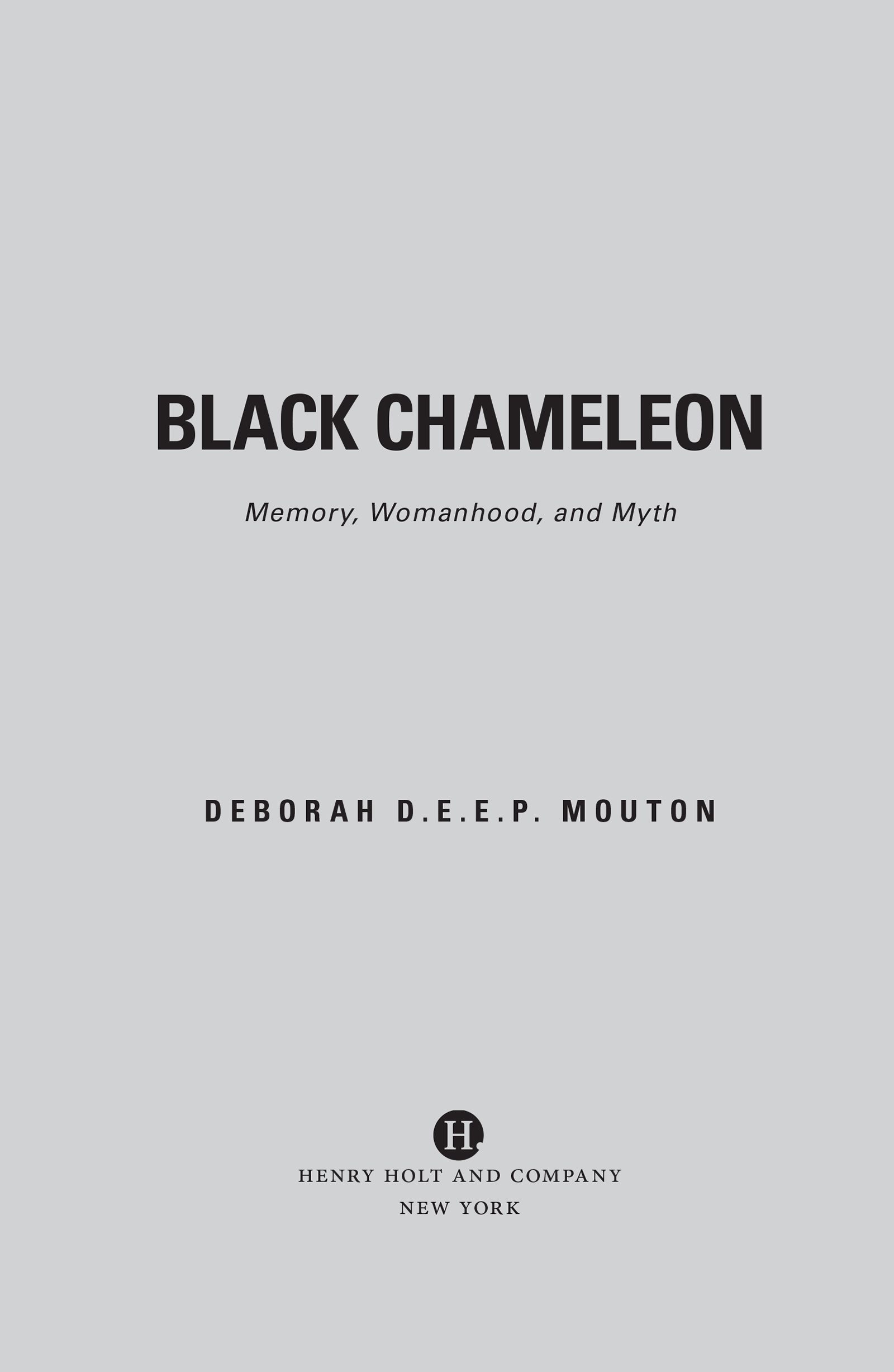
The author and publisher have provided this e-book to you for your personal use only. You may not make this e-book publicly available in any way. Copyright infringement is against the law. If you believe the copy of this e-book you are reading infringes on the authors copyright, please notify the publisher at: us.macmillanusa.com/piracy.
For those who have had to shape-shift, code switch, and camouflage just to survive, this one is for us.
Im gonna tell you these stories.
Not all of them are real,
but that doesnt mean they arent true.
To believe in me is first to know me fully. In the way one learns of a gods redemptive abilities at their first round with Death. This, so many refuse to do. Always take the power before I get a real hold on it. Black Woman. But I too am an ancestor. I too got a right to sit at Heavens table and be served a plate. Deserve to inhabit my own jungle. I shape-shift behind the sun in midday. I learn from my mistakes. Give myself that permission. And I listen. Because even I have a mother. A griot in her own right, who tells me of the women who came before me. Of their all-seeing eyes. Their chameleon code switch. Their sticky tongues. Fastest on earth. Just like mine. I wonder how much of it, of me, I can tell you of before you are a new believer.
Let us see.
My bloodline descended from the Women Who Were Blind. After making the sail from Africa, the ones who didnt sacrifice themselves to the sea, or escape in the Great Flight, adapted. Now settled on a plot between the Gulf and the dense trees, they wrestled to let go of the voyage. Having seen too much horror on the bottoms of those ships, they searched for a way to forget. In the late nights, when their captors werent watching, they would sneak out into the tallest stalks and take turns pressing their thumbs into one anothers eyes until it all went dark. It is easier to forget what you cannot see. It is harder to sell what is already damaged. So when the Women Who Were Blind bore girl children, they saved them the trouble. Called it a rite of passage. They would wait until they were old enough to walk. Then they took them out past the fields where the runaways hung like chandeliers in a grand forest ballroom. There, under the starlight, they showed their daughters all the skys diamonds and then pressed until there was no more moon. The Women Who Were Blind called it mercy.
Over the next few nights, the Women Who Were Blind would hold their new daughters hands and walk them through the forest, teaching them how to hear ahead and feel their feet anew. When they tripped, they would scoop them up and put them on their strong backs. The girls would weep. Then the Women Who Were Blind would sing them a hymn of the last drinking gourd they saw, until they were sound asleep.
Follow the drinking gourd
One woman, the one they called Fumbe, had a voice so enchanting, she could sing the galaxy smaller, make the ocean the skys envy. She had received mercy early and now found herself with pregnancy put in her belly by the shadows and the stables. She would rub the sphere sprouting and sing it that drinking gourd song until the kicking quickened in her belly with hope. The other blind women around her would place their hands on her belly and wait for signs of joy. They would imagine her womb held the Messiah or Mosessome man to lead them far away from there. As her belly swelled, Fumbe tried not to entertain thoughts of another girl. She thought her hands too weak to do what would have to be done.
When the ninth month dawned, Fumbe waded out into the Gulf until she was waist-high. The Women Who Were Blind surrounded her, gripping their feet into the silt.
They cried out for Yemaya to lessen the pain. When Yemaya heard them, she rushed to Fumbe. Her hands cradling Fumbes belly. The ebb and flow whispering Push . Fumbes water broke and she was one with the sea. Her child swimming forth with every thrust. The Women Who Were Blind braced her arms as she squatted and felt the newness fish from between her legs. Then the Women Who Were Blind scooped the child from the waters and held her high in the air, offering her up to the goddess. By now it was night and the songs of the cicada ushered them into praises for Yemayas grace. Yemayas golden-scaled tail caught the kiss of moonlight as she grasped the child and swam circles around Fumbe. The water danced and her chains chimed a welcome song in motion. She held the child for a moment before she placed it warm against Fumbes chest. Then she offered a kiss and swam down into the sea, leaving a ripple of light behind her. At the first hold, Fumbe felt the braille of the childs face: a perfect nose, high cheeks, two eyes wide open to the moon. She glided her hand around its full belly and healthy legs until she felt nothing more. Then she held her daughter tight and wailed. She knew then her name must be Eshe, for all the life she would have to take was here in her arms.
Eshe bloomed early. Around six months, she said her first word as clear as rain: water . While strapped to her mothers chest in the fields, Eshe would pull at her mothers shirt until Fumbe would douse Eshes head and arms from her canteen. The heat was unbearable and even Eshe had figured out the only thing that gave any reprieve. When the workday was over, and Fumbe had stumbled back to her shanty exhausted, Eshe would lay beside her and babble while playing with her mothers lips, nose, eyesnow patched over. Eshe was the light of Fumbes day, in all her wonder and curiosity. Until the day she turned two.
Now that Eshe was old enough to own her steps, the Women Who Were Blind urged Fumbe that the time of mercy was upon her. So one evening, after the workday, the women lined the edge of the field as they had done so many times before. The air was thick and sticky. The Women Who Were Blind held their daughters hands, with sight and with mercy. Those daughters still able to see were led out into the forest. Fumbe gripped tight to Eshes hand and hesitantly pulled her along. The trees heightened, and the form of familiar fruit became more visible in the distance. Fumbe knelt before Eshe, fighting off the tears. She pointed up and told her of the stars and the Big Dipper. Then she promised Eshe the next part would keep them together forever. Eshe looked around and heard the screams of the other girls, but it was too late. Fumbe had hold of her head and began to tremble. The shrieks of the mercy echoed through the trees as Fumbe pressed harder and harder until there was no moon. Then she held Eshe tight against her chest. The two of them sat among the thicket, consumed by their own tears. Eshe cried herself to sleep, and Fumbe placed her on her back. When she tried to sing, she was muted by pain. Instead, she felt her way back to the group in silence.
The next night, Fumbe rubbed Eshes head and promised the worst was over. Fumbe told Eshe that she had so many things to show her now. Eshe, patched about the eyes, stumbled as Fumbe pulled her out into a clearing a stones throw away from the birthing place. Fumbe instructed her to listen. There was a way to hear direction just by how the wind blew through the trees. She told her to hear the rustle of the bushes; the small animals only hid west of the plantation. Fumbe ran her bare feet through the blades of grass until she found where the dirt bore its naked soil and the footprints of decades of women radiated warmth. She squeezed Eshes hand, and just as quickly, Eshes tiny palm squeezed back, before they both released and her child was free to discover her own air. The chill of her mothers absent guidance made her fearful at first. Eshe, in the way a foal stumbles before finding balance, toddled from tree to tree trying to get her bearings. Fumbe listened as branch breaks quickened with Eshes growing confidence. The stumbling fall was usually soon to follow. But no cry ensued as Eshe felt for moss on the freedom side of the trees or as she used the willows weeping branches to guide her through the canopy to the score of her own laughter. For a moment all was silent. Fumbe lost her daughter to the wind. The owls hoo. Then Eshes distant mouthing of the word water just outside of her mothers reach. Yemayas voice echoed as far as the sugar fields. Fumbe called Eshe back to her, but before she could grab hold of an arm, she heard Eshes footsteps in the silt. Fumbe stumbled, heart pounding panic as she called out for Eshes hand but instead heard her chant for water grow the distance between them. Fumbe swung wildly around until she began to run in the direction of Eshes footsteps. She ran toward the faint splash. Just then, a rock found her about the ankle. Fumbe tumbled and hit her head hard on the earth.


